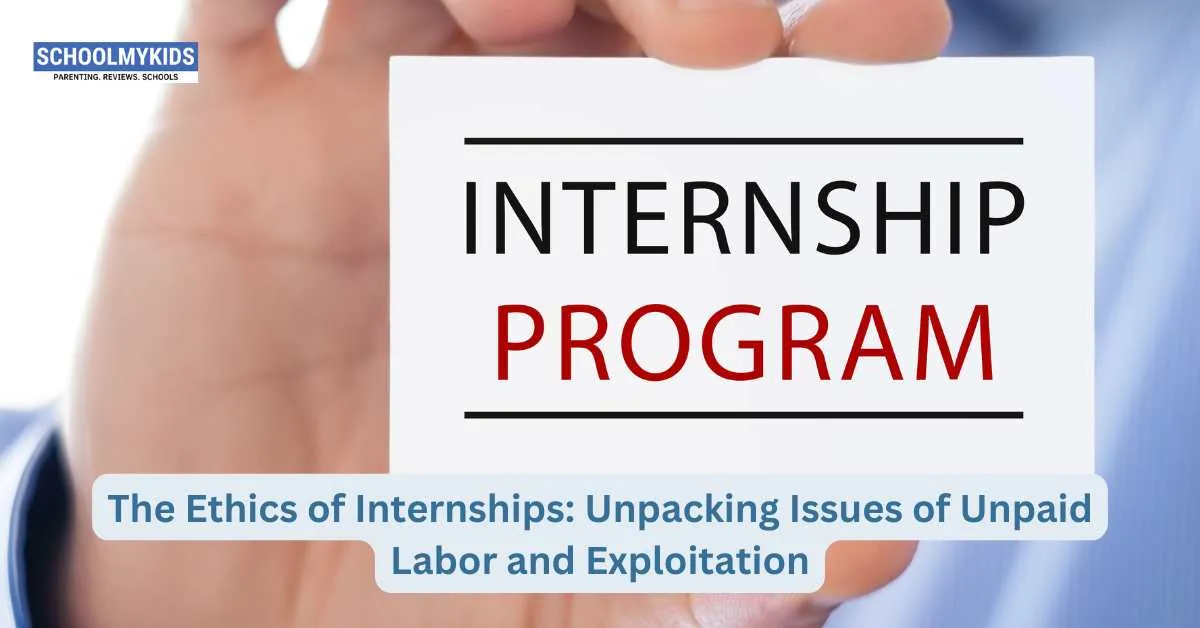Introduction
Internships are often marketed as a gateway to opportunity—a chance to gain experience, build a resume, and “get your foot in the door.” But beneath the surface of glowing LinkedIn posts and coffee-fueled office selfies lies an uncomfortable truth: many internships, especially unpaid ones, walk a fine ethical line. As more students rely on internships for career advancement, the question arises—who really benefits, and at what cost?
The Allure of the Internship Economy
In today’s competitive job market, internships have become almost non-negotiable. Employers want work-ready graduates, and students are told early on that internships are the fastest path to employment. Companies gain from this arrangement—they get eager workers with fresh ideas, often at no cost. But when internships become unpaid or underpaid, the system starts to tilt unfairly.
Unpaid internships disproportionately exclude students from lower- or middle-income backgrounds. Not everyone can afford to work for free in expensive cities or commit to long hours without financial compensation. This creates a privilege gap where only those who can “afford to learn” get the best opportunities.
What’s Legal Isn’t Always Fair
In many countries, unpaid internships are technically legal if they meet specific criteria. For example, in India, companies often offer “stipend-free” internships under the claim that they’re educational, not labor. But in reality, many interns are expected to complete real assignments, meet deadlines, and contribute to revenue-generating tasks.
If someone is performing meaningful work that benefits a company, compensation becomes a matter of ethics—even if not mandated by law. The line between “learning opportunity” and “free labor” is often blurred, especially in creative, media, or social sectors where exploitation is easily disguised as exposure.
The Psychological Impact
Interns are often afraid to speak up about unfair expectations. There's pressure to be grateful for any opportunity, especially in prestigious or competitive industries. This creates a culture of silence, where students hesitate to ask for support, question unclear roles, or challenge unrealistic deadlines.
Unpaid internships also impact confidence and mental health. Interns may doubt their worth, worry about falling behind peers with paid roles, or feel stuck in cycles of “experience without income.” For many, the internship becomes more exhausting than empowering.
Barriers to Equity and Inclusion
When unpaid internships become the norm, entire groups of students are pushed to the margins. First-generation students, those supporting families, or individuals from rural areas often cannot afford the cost of unpaid work. As a result, industries become dominated by those from privileged backgrounds, reinforcing systemic inequities.
It also shapes the perception of success. When unpaid internships at big companies are glorified on social media, students with paying jobs at smaller firms or no internship at all begin to question their self-worth—despite their circumstances being just as valid.
What Should Ethical Internships Look Like?
An ethical internship is one that respects time, labor, and learning. It should provide:
- Clear learning outcomes and mentorship
- Fair compensation or financial support (stipend, travel, meals)
- Structured feedback and skill-building
- Defined work hours and responsibilities
Companies benefit from interns, and in return, students deserve support—not just a certificate.
The Role of Institutions and Policymakers
Colleges and universities can play a critical role by vetting internship partners, collecting feedback from students, and advocating for fair practices. They should offer alternatives for students who can’t afford unpaid roles, such as on-campus research, part-time projects, or funded fellowships.
Policy change is equally essential. Governments should consider setting minimum wage protections for interns, particularly in for-profit organizations. Employers should be held accountable not only for what interns learn, but how they are treated.
Conclusion
Internships should be stepping stones, not stumbling blocks. When they become a source of exploitation, they betray the very promise they hold—to bridge students toward meaningful careers. It's time to stop glorifying unpaid work and start demanding internships that value students’ time, skills, and dignity. Because real learning doesn’t come at the cost of basic fairness.








Be the first one to comment on this story.